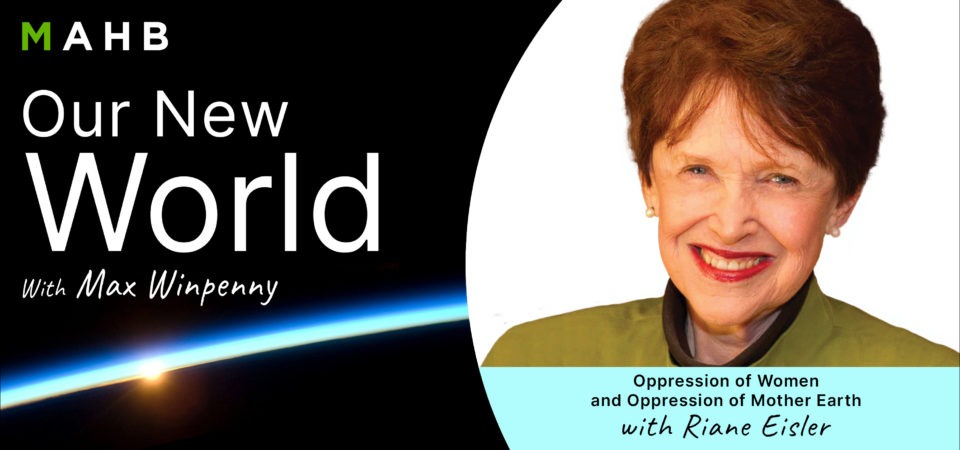Item Link: Access the Resource
Author(s): Max Winpenny
Why is our Society so obsessed with domination? In this episode, Riane Eisler explores the link between the oppression of women and the oppression of nature. She discusses how her early life influenced her work, the history of domination societies and what we can do to change the way our current systems work.
Riane’s work transcends generations, has been hailed by the likes of Desmond Tutu, and was the foundation for the establishment of a Social Wealth Index. Oppression of sections of society is not a new concept, but 2020/2021 showed us that it continues to exist in today’s world and is a major barrier to the protection of our planet.
See Riane’s work here: https://centerforpartnership.org/, https://rianeeisler.com/, https://www.partnerism.org/
Riane Eisler, JD, PhD (hon), is president of the Center for Partnership Systems (CPS) and Editor-in-Chief of the Interdisciplinary Journal of Partnership Studies at the University of Minnesota. Dr. Eisler is the author of numerous books, including Nurturing Our Humanity: How Domination and Partnership Shape Our Brains, Lives and Future (Oxford University Press, 2019) and The Chalice and The Blade: Our History, Our Future (now in its 57th US printing and in 27 foreign editions). Her The Real Wealth of Nations: Creating a Caring Economics was hailed by Nobel Peace Laureate Archbishop Desmond Tutu as “a template for the better world we have been so urgently seeking” and inspired the development of CPS’s Social Wealth Index, showing the economic return from investing in caring for people, starting at birth, and caring for our natural life-support systems. Eisler pioneered the expansion of human rights theory and action to include women and children, and her research, writing, and speaking has transformed the lives of people worldwide. She keynotes conferences internationally and consults for governments on partnerism and the partnership model.
The views and opinions expressed through the MAHB Website are those of the contributing authors and do not necessarily reflect an official position of the MAHB. The MAHB aims to share a range of perspectives and welcomes the discussions that they prompt.

